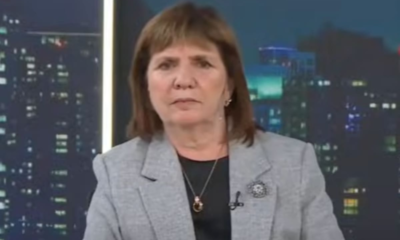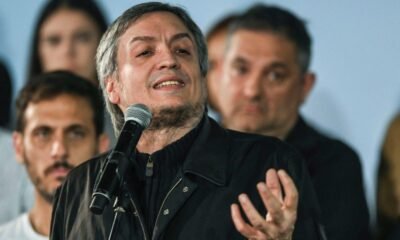INTERNACIONAL
Denmark PM says ‘you cannot spy against an ally’ following reports of US spying on Greenland

Denmark Prime Minister Mette Frederiksen said Friday that «you cannot spy against an ally» in response to reports that the U.S. was gathering intelligence on Greenland, as U.S. President Donald Trump has continued to suggest purchasing the Arctic island.
«Cooperation about defense and deterrence and security in the northern part of Europe is getting more and more important,» Frederiksen told The Associated Press. «Of course, you cannot spy against an ally.»
Frederiksen made the comments as Denmark and Greenland push back on Trump’s desire to acquire the autonomous Danish territory, stressing that it is not for sale. Trump, however, has not ruled out taking it by military force despite Denmark being a NATO ally.
GREENLAND’S PRIME MINISTER SAYS ISLAND CANNOT BE BOUGHT, US HAS ‘NOT BEEN RESPECTFUL’
Denmark’s Prime Minister Mette Frederiksen listens, during a meeting of the Joint Expeditionary Force (JEF) in Oslo, Friday, May 9, 2025. (AP)
«I don’t rule it out. I don’t say I’m going to do it, but I don’t rule out anything,» Trump said earlier this week during an interview on NBC News’ «Meet the Press.»
«We need Greenland very badly. Greenland is a very small amount of people, which we’ll take care of and we’ll cherish them and all of that, but we need that for international security,» he added.
The Danish prime minister’s statement on Friday came the day after Denmark summoned the top American diplomat in the country for an explanation to a report from The Wall Street Journal about several high-ranking officials under the U.S. director of national intelligence, Tulsi Gabbard, directing intelligence agency heads to collect information on Greenland’s independence movement and views about U.S. resource extraction on the island.
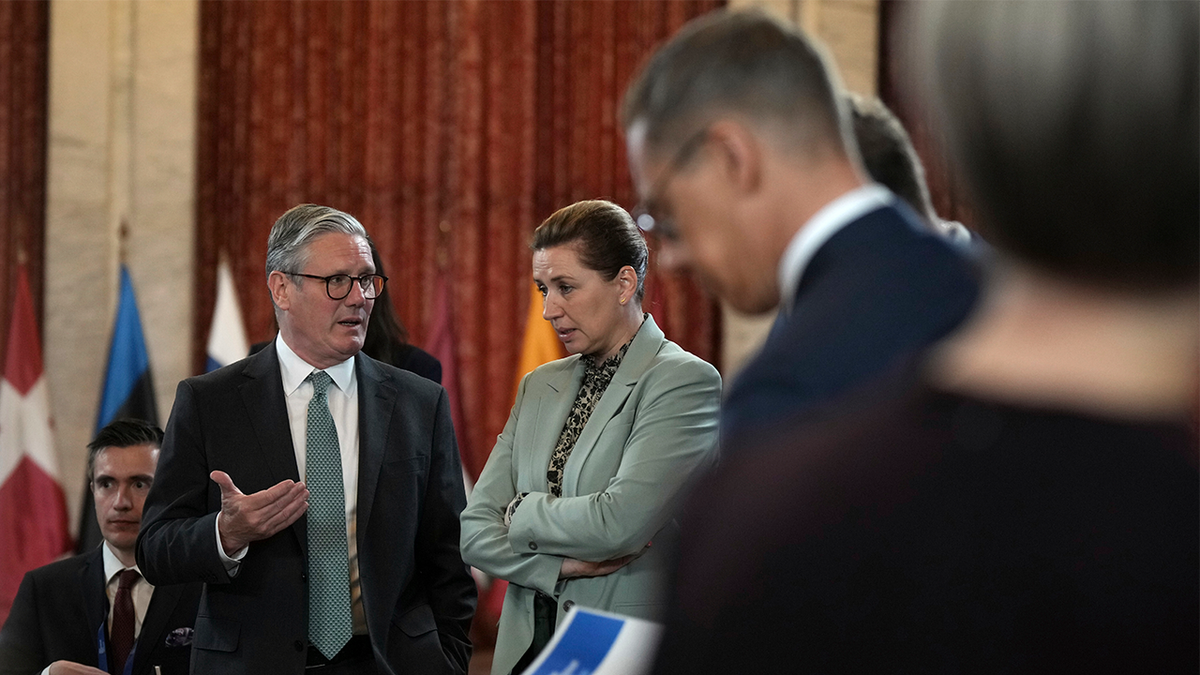
Britain’s Prime Minister Keir Starmer talks to Danish Prime Minister Mette Frederiksen during the Joint Expeditionary Force (JEF) Leaders’ Summit in Oslo, Friday, May 9, 2025. (AP)
Acting head of the U.S. Embassy in Copenhagen, Jennifer Hall Godfrey, met with Danish diplomat Jeppe Tranholm-Mikkelsen at the Danish Foreign Ministry, although details of the meeting were not disclosed.
Greenlandic Prime Minister Jens-Frederik Nielsen told Greenland newspaper Sermitsiaq that the reports of U.S. espionage are unacceptable and disrespectful.
Nielsen said last month that Greenland «will never, ever be a piece of property that can be bought by just anyone» and that «the talks from the United States have not been respectful.»
TRUMP SAYS HE WASN’T ‘TROLLING’ ABOUT ACQUIRING GREENLAND, CANADA AS 51ST STATE
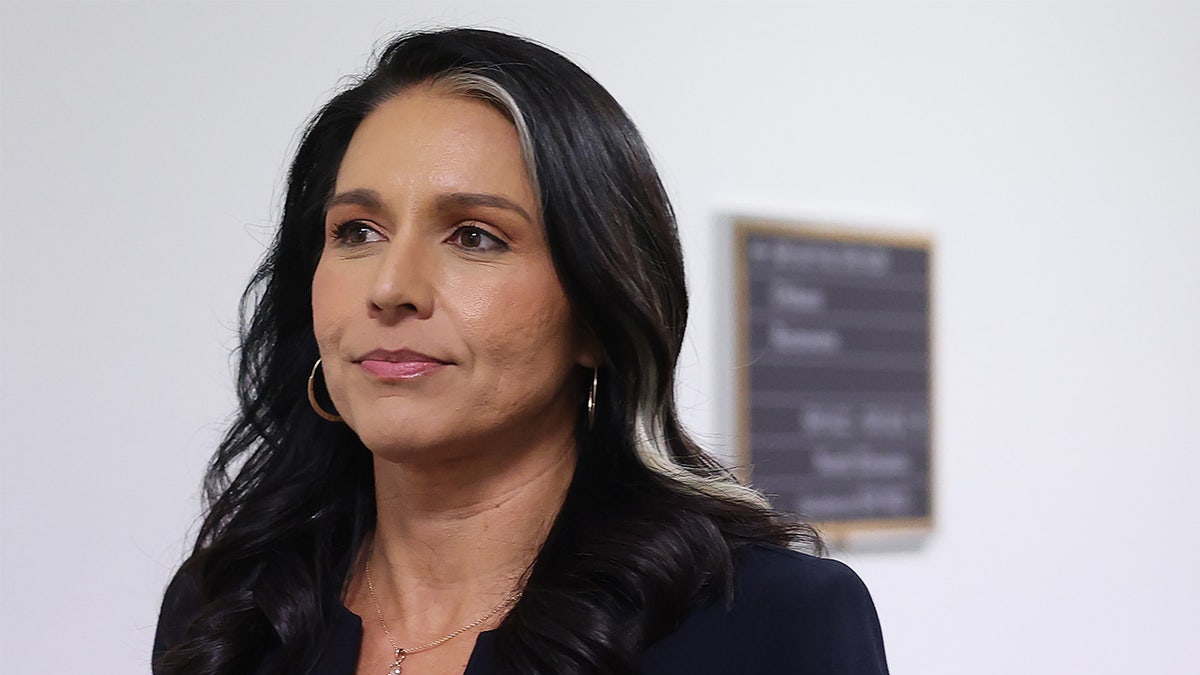
Officials under the U.S. director of national intelligence, Tulsi Gabbard, directed intelligence agency heads to collect information on Greenland’s independence movement and views about U.S. resource extraction. (Getty Images)
CLICK HERE TO GET THE FOX NEWS APP
Gabbard’s office released a statement saying she had made three «criminal» referrals to the U.S. Justice Department over intelligence community leaks in response to the report from The Wall Street Journal, which cited two sources familiar with the matter.
«The Wall Street Journal should be ashamed of aiding deep state actors who seek to undermine the President by politicizing and leaking classified information,» Gabbard said. «They are breaking the law and undermining our nation’s security and democracy. Those who leak classified information will be found and held accountable to the fullest extent of the law.»
The Associated Press contributed to this report.
INTERNACIONAL
Fox News Politics Newsletter: A Big, Beautiful Clawback
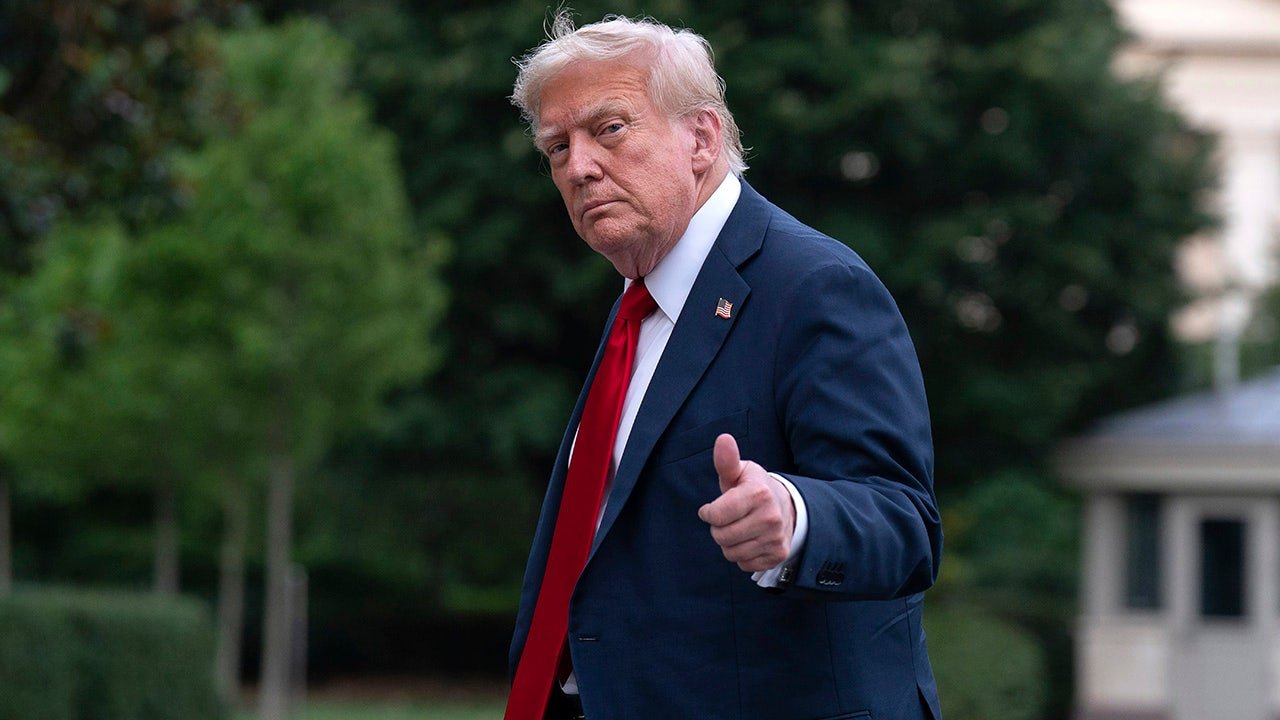
NEWYou can now listen to Fox News articles!
Welcome to the Fox News Politics newsletter, with the latest updates on the Trump administration, Capitol Hill and more Fox News politics content. Here’s what’s happening…
– Trump admin readies for fight after judges block Abrego Garcia removal for now
– Thailand, Cambodia troops open fire on each other, killing at least 12
– Senate Republicans call on DOJ to appoint special counsel to probe Obama-Russia intel
Trump Privately Signs $9 Billion Clawback Package of Spending Cuts
President Donald Trump signed into law his roughly $9 billion rescissions package to scale back already approved federal funds for foreign aid and public broadcasting Thursday, after both chambers of Congress approved the legislation earlier in the month, sources familiar to the matter have confirmed.
The signing marks another legislative victory for the Trump administration just two weeks after the president signed into law his massive tax and domestic policy measure, dubbed the «big, beautiful bill.»
The rescissions package pulls back nearly $8 billion in funding Congress already approved for the U.S. Agency for International Development (USAID), a previously independent agency that provided impoverished countries aid and offered development assistance… READ MORE
President Donald Trump gives a thumbs up to reporters as he walks on the South Lawn upon arriving at the White House on Sunday, July 13, 2025, in Washington, D.C. (AP/Jose Luis Magana)
White House
‘LAWLESS AND INSANE’: Trump admin readies for fight after judges block Abrego Garcia removal for now
CLASH OVER AUTHORITY: Trump foe Boasberg to grill DOJ over migrant flights in heated hearing
REVERSING COURSE: Trump says he wants Elon Musk to ‘thrive’ after suggesting DOGE could investigate him
POWER STRUGGLE: Trump stands by Alina Habba as DOJ clashes with judges over her replacement
LEGAL SCRUTINY: DOJ forms Russiagate ‘strike force’ to investigate declassified Obama-era evidence
LEGAL SETBACK: Federal appeals court rules against Trump’s birthright citizenship executive order
‘I AM RECOVERING’: Pam Bondi cancels appearance at anti-trafficking summit over medical issue
World Stage
ACCOUNTABILITY TEST: Zelenskyy forced to rethink anti-corruption law after public backlash
MAN MACHINE MERGER: China experimenting with brain-computer interfaces in global race for AI dominance: report
BORDER BATTLE ERUPTS: Thailand, Cambodia troops open fire on each other, killing at least 12
BEACH BLAST: Battle over the Black Sea: Russia, Ukraine strike top resort cities
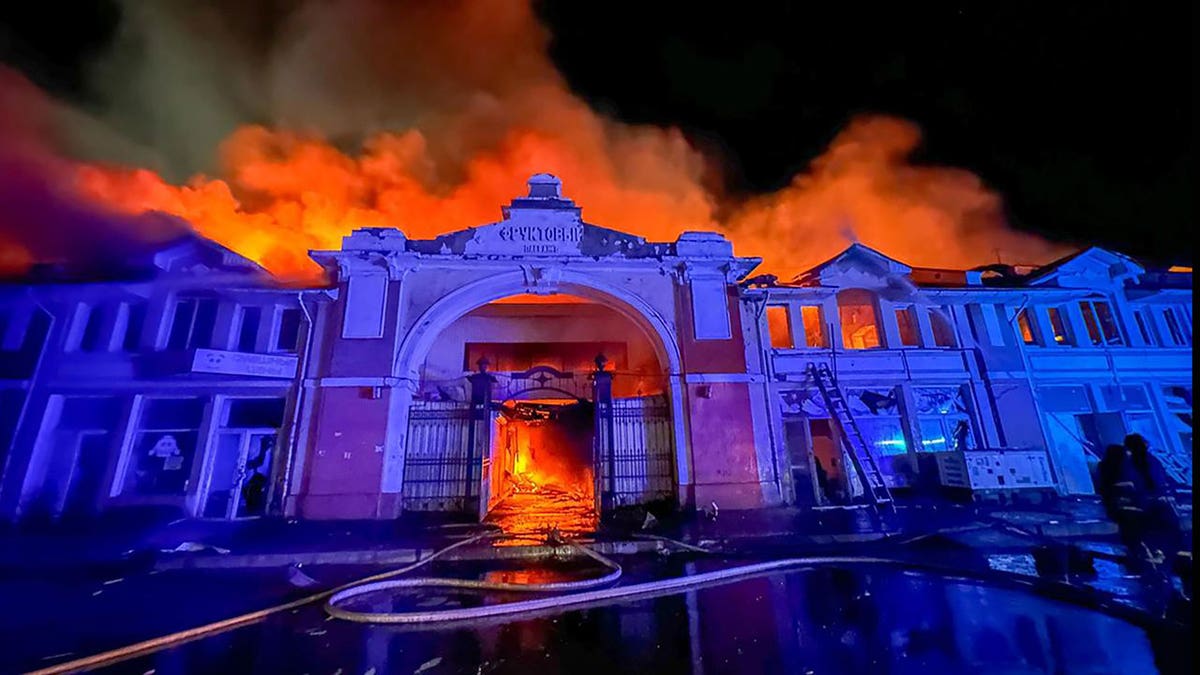
Russia launched a terrifying assault on Ukrainian Black Sea city Odesa, hitting a nine-floor residential building and destroying the iconic Privoz Market, which has existed since 1827, Odessa, Ukraine 7/24/25. (East2West via Ukraine Ministry of Defense)
Capitol Hill
EYES IN THE SKIES: Rules keeping drones on leash could loosen with deregulation proposal from Congress
COLLUSION CHAOS: Trump-foe Adam Schiff dismisses Tulsi Gabbard’s declassified Russia collusion intelligence as ‘dishonest’
BEG YOUR PARDON: WATCH: House Republicans zero in on Biden autopen pardons after bombshell report
EPSTEIN SECRETS: Jeffrey Epstein accomplice Ghislaine Maxwell to see how feds meeting plays out amid subpoena: brother
CREATING OPPORTUNITY: EXCLUSIVE: GOP proposal seeks to end ‘backdoor hiring practices’ at American universities
INTEL DECEPTION: Senate Republicans call on DOJ to appoint special counsel to probe Obama-Russia intel
BRIDGING THE DIVIDE: ‘Shirts and Skins’: How one Republican bridged the gap to pass Trump’s ‘big, beautiful bill’
NOT WELCOME: House Republican introduces companion bill to end China’s buying of American farmland
‘GOOD LUCK’: House to vote on censuring Dem rep charged in ICE facility incident
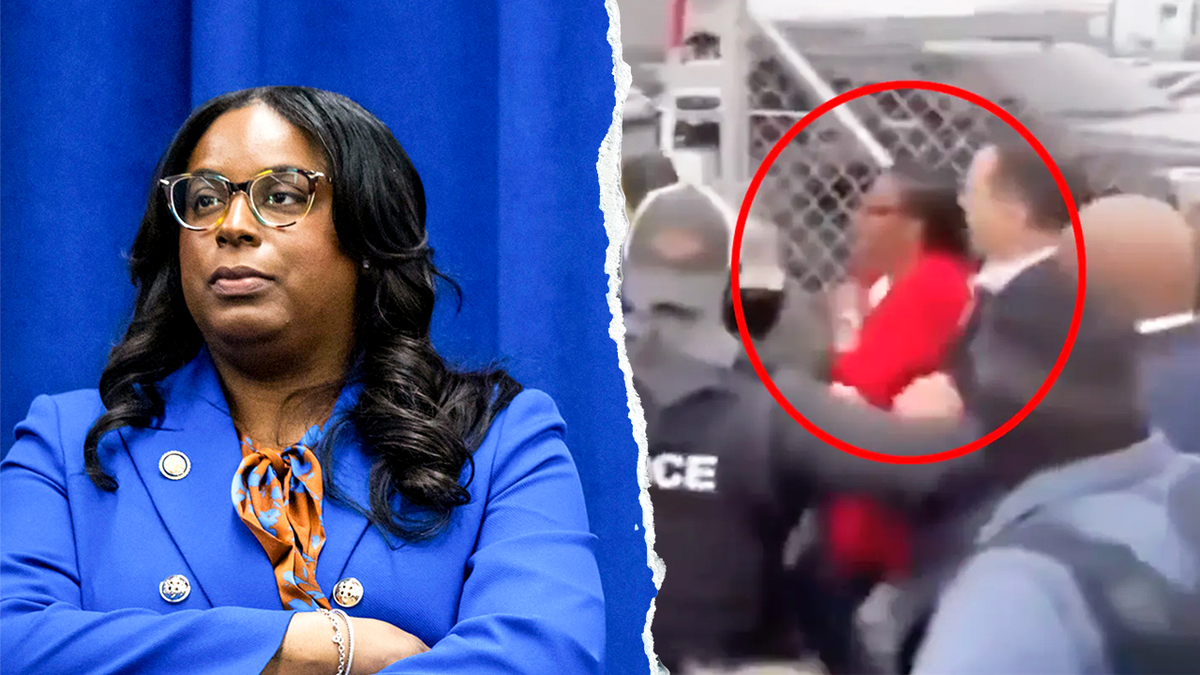
New Jersey Rep. LaMonica McIver was charged on Monday for allegedly assaulting law enforcement officers outside of an ICE detention facility earlier this month. (Getty Images/Department of Homeland Security)
KLAIN TO FAME: Ex-Biden chief of staff Ron Klain faces grilling in House GOP’s cover-up probe
ANTI-ANTISEMITISM: Pro-Israel Dem says those who won’t decry Hamas over Oct. 7 attack ‘have no business’ posing as humanitarians
FINDING THE FORCE: ‘Star Wars bar of leftists’: Weingarten, Hunter, Mamdani prove Democrat Party lead by extreme figures
Across America
‘SEVER’ CONNECTIONS: West Point Bible crest controversy spurs lawsuit from conservative watchdog
THE CHOSEN ONE: RNC Chair Michael Whatley to seek open Republican-held Senate seat in battleground North Carolina: sources
HATE SPEECH SILENCE: Dem governor criticizes Mamdani for not condemning ‘blatantly antisemitic’ rhetoric
WAKE UP CALL: Mamdani’s former Dem colleague rails against his signature campaign promise: ‘Nail in the coffin’
Get the latest updates on the Trump administration and Congress, exclusive interviews and more on FoxNews.com.
INTERNACIONAL
Estados Unidos ofrece una recompensa millonaria por siete norcoreanos acusados de financiar al régimen de Kim Jong-un

El Departamento de Estado de Estados Unidos ofreció este jueves una recompensa de hasta quince millones de dólares por información que lleve al arresto o condena del norcoreano Sim Hyon-sop y de seis presuntos colaboradores, vinculados a actividades ilícitas para obtener divisas destinadas al régimen de Kim Jong-un, entre las cuales se destacan operaciones de contrabando y la compraventa ilegal de tabaco, con el objetivo de acceder a dólares estadounidenses y financiar entidades sancionadas por la ONU y Washington.
La recompensa se distribuye en diferentes montos: hasta siete millones de dólares por Sim Hyon-sop, hasta tres millones respectivamente por Myong Chol-Min y Kim Se-Un, y hasta 500.000 dólares por Ri Won-Ho, Kim Yong-Bok, Kim Chol-Min (alias “Jack”) y Ri Tong-Min (alias “Elvis”). El Departamento de Estado sostiene que los siete norcoreanos organizaban la compraventa internacional de tabaco de origen norcoreano, facilitando el ingreso de divisas al país asiático en violación de las sanciones vigentes.
El comunicado estadounidense detalla además que a Sim, junto a varios de sus colaboradores, se les atribuyen operaciones ilícitas relacionadas con el sector de las tecnologías de la información (TI). Según la información oficial, el régimen de Pyongyang envía a miles de trabajadores de TI al extranjero, en particular a Rusia y China, para gestionar proyectos y trabajos fraudulentos. Estas actividades incluyen operaciones de ciberdelincuencia, diseñadas para generar ingresos que contribuyen a la financiación de los programas de armas de destrucción masiva del régimen norcoreano.
En paralelo, el Departamento del Tesoro de Estados Unidos anunció sanciones contra la compañía Korea Sobaeksu Trading Company, señalando su rol como entidad reclutadora y coordinadora de trabajadores norcoreanos especializados en TI en el exterior, entre ellos envíos recientes a Vietnam. Las sanciones también afectan a tres ciudadanos norcoreanos implicados en planes ilegales destinados a la obtención de fondos para el régimen.
Según la administración estadounidense, estas redes operadas desde el extranjero otorgan a Corea del Norte acceso a sistemas tecnológicos avanzados, infraestructura financiera ilícita y facilitadores internacionales que apoyan la recaudación de fondos para organizaciones sancionadas, como el Departamento de Industria de Municiones y el Ministerio de Energía Atómica e Industria. Dichas instituciones cumplen un papel central en el desarrollo del programa nuclear y de misiles, foco de condena internacional.
El Departamento de Estado enfatizó que las medidas tomadas reflejan la determinación de la Administración de Donald Trump para enfrentar las amenazas de Corea del Norte y proteger tanto los intereses de las empresas estadounidenses como la estabilidad del sistema financiero y la seguridad de los ciudadanos.

Por otra parte, la situación de seguridad regional en Asia ha mostrado nuevas señales de tensión tras declaraciones del dictador norcoreano Kim Jong-un para arengar a su ejército a prepararse “para una guerra real”, durante un concurso de disparo de unidades de artillería efectuado el miércoles y difundido este jueves por los canales estatales de comunicación. Según la Agencia Central de Noticias de Corea (KCNA), Kim instó a las tropas a estar listas para el combate “en cualquier momento” y a desarrollar la capacidad de “destruir al enemigo en cada batalla”.
Las imágenes, difundidas por la Televisión Central de Corea, muestran a Kim observando las maniobras con binoculares desde un puesto de mando, acompañado de altos mandos militares. La localización del ejercicio no fue divulgada.
Estos llamados a la preparación militar se producen después del reporte de agencias de inteligencia surcoreanas y occidentales sobre el envío de más de 10.000 soldados norcoreanos a la región rusa de Kursk, junto a material bélico como proyectiles de artillería, misiles y sistemas de cohetes de largo alcance, en apoyo a la ofensiva rusa en Ucrania que lleva ya más de tres años desde su inicio. En esos enfrentamientos, murieron aproximadamente 600 soldados norcoreanos y miles resultaron heridos, según fuentes oficiales surcoreanas.
Las relaciones entre Corea del Norte y Rusia han cobrado renovado impulso a partir de la firma de un acuerdo militar el año pasado, que contempla una cláusula de defensa mutua. El pacto fue sellado durante la visita del presidente ruso Vladimir Putin a Pyongyang. Kim Jong-un reiteró su respaldo total a Rusia en su conflicto con Ucrania durante una reunión con el canciller ruso, Sergei Lavrov, el pasado 13 de julio en la ciudad de Wonsan, en el este del país.
Ambos gobiernos permanecen bajo fuertes sanciones internacionales y su cooperación militar suscita preocupación en la comunidad internacional por el potencial impacto en la seguridad regional y global.
(Con información de AFP y EFE)
Asia / Pacific,Government / Politics,PYONGYANG
INTERNACIONAL
Hillary Clinton sounded alarm on Biden’s political viability ‘by 2024,’ Klain told House investigators
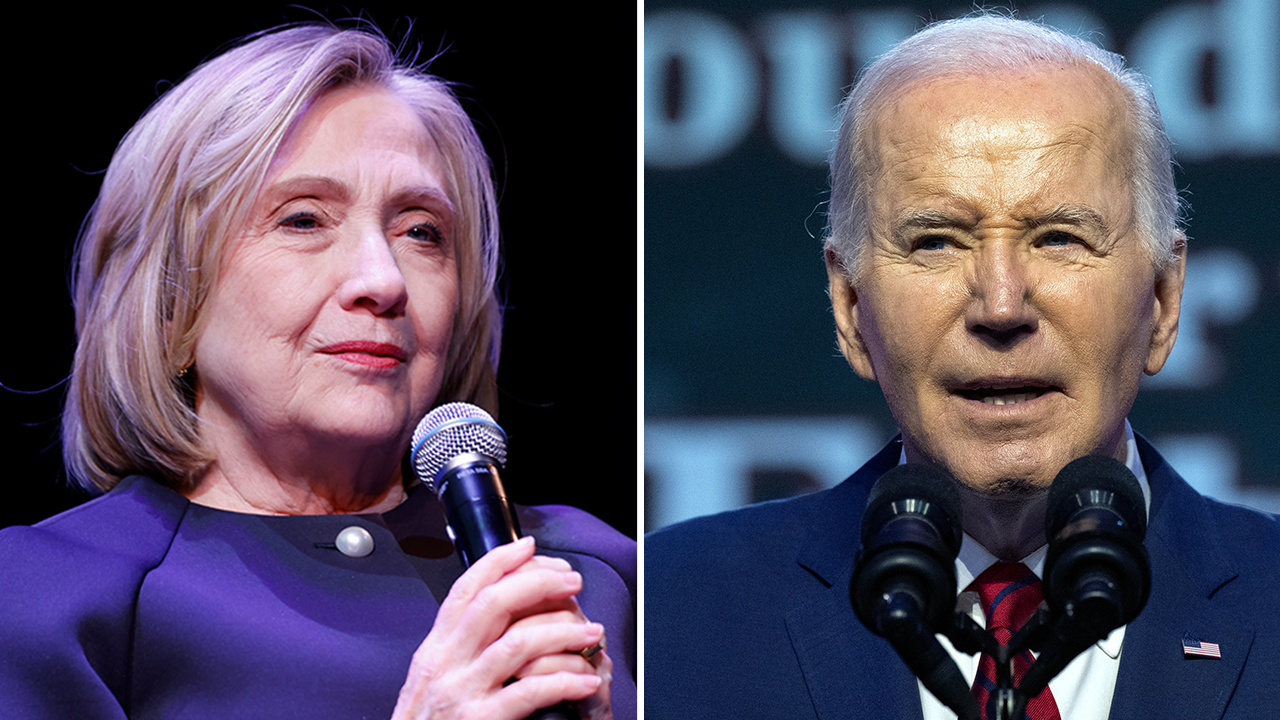
NEWYou can now listen to Fox News articles!
Ex-President Joe Biden’s former chief of staff Ron Klain told House investigators that Hillary Clinton approached him with concerns about the octogenarian leader’s political viability «by 2024,» Fox News Digital has learned.
Klain spoke with staff on the House Oversight Committee for over five hours on Thursday, as Committee Chairman James Comer, R-Ky., continues to probe whether top Biden aides concealed signs of mental decline in the ex-president.
A source familiar with his voluntary interview told Fox News Digital that Klain believed Biden was mentally sharp enough to serve as president, and was not too old to run.
But the ex-secretary of state and former Biden national security adviser Jake Sullivan both «approached Ron Klain stating they believed Joe Biden was not politically viable» months before he dropped his re-election bid in July 2024, the source said.
COMER DISMISSES BIDEN DOCTOR’S BID FOR PAUSE IN COVER-UP PROBE: ‘THROWING OUT EVERY EXCUSE’
Former Secretary of State Hillary Clinton shared concerns about ex-President Biden’s political viability by 2024, a source said. (Getty Images)
Sullivan told Klain that Biden «was less effective in 2024 compared to 2022,» the source said.
It’s not immediately clear if Biden’s mental acuity was the reasoning for their doubts, nor if they made the case to Klain together or separately.
But it’s a significant indictment coming from top national Democrats of Biden in general, long before concerns about his fitness for office within the party were made public knowledge.
Sullivan had been a top aide to both Biden and Clinton, having served as the latter’s senior policy advisor during her 2016 campaign.
Klain, who served as White House chief of staff for the first half of Biden’s term, conceded that the then-president was less energetic and more forgetful, though he defended his «acuity to govern,» the source said.
«Mr. Klain stated that President Biden often confused names and proper nouns, and it got worse over time,» the source said.
Fox News Digital was told that Klain also said there was no reason to doubt President Donald Trump’s own mental fitness.
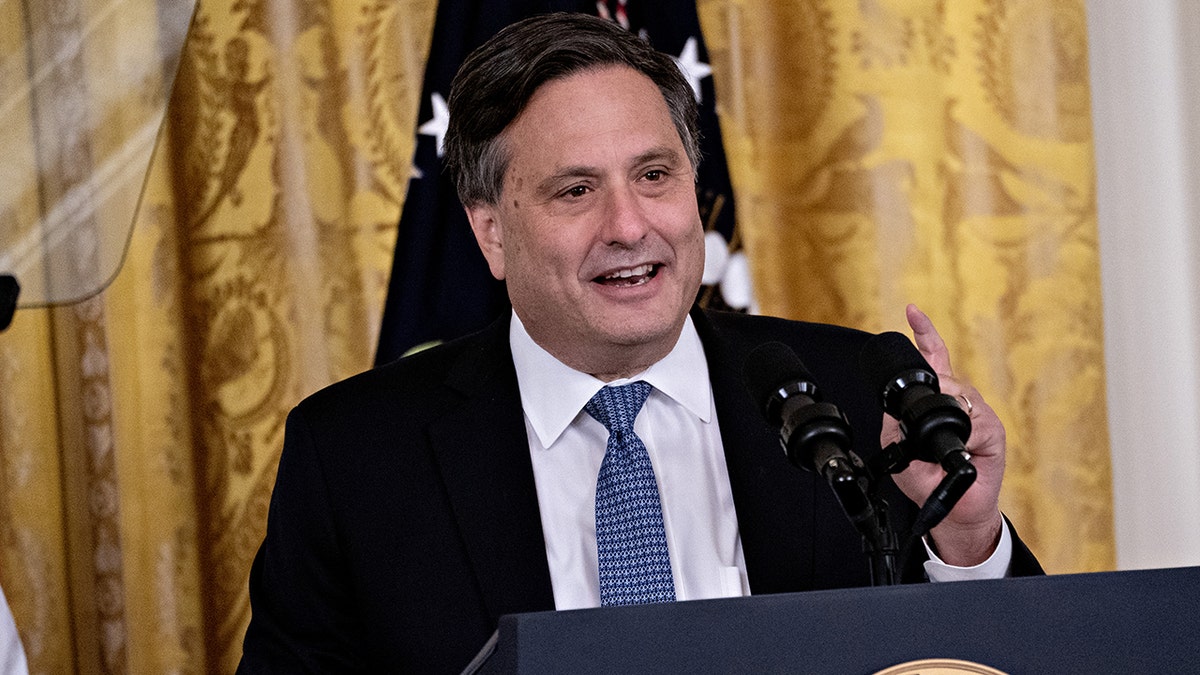
Ron Klain, former White House chief of staff, allegedly made the revelation to House investigators (Andrew Harrer/Bloomberg via Getty Images)
Klain said nothing to reporters when going in or out of the committee room Thursday.
He’s the sixth former Biden administration aide to appear for Comer’s probe.
And despite the interview being largely staff-led, Comer did make an appearance for the early half of the sit-down, and Reps. Andy Biggs, R-Ariz., and Ro Khanna, D-Calif., were both briefly there as well.
Both Biggs and Khanna called Klain «credible» from what they saw inside the room.
«I think he is telling what he knows accurately,» Biggs told Fox News Digital.
FAR-LEFT FIREBRAND SAYS SHE ‘NEVER HAD A CONCERN’ ABOUT BIDEN’S MENTAL STATE AS HOUSE PROBE HEATS UP
On the other side of the aisle, Khanna told reporters, «He answered every single question. He was fully cooperative.»
Three other former Biden White House aides who previously appeared – Annie Tomasini, Anthony Bernal, and ex-White House doctor Kevin O’Connor – all appeared under subpoena and pleaded the Fifth Amendment to avoid answering questions.
Longtime Biden aide Ashley Williams and ex-staff secretary Neera Tanden, like Klain, came for voluntary transcribed interviews.
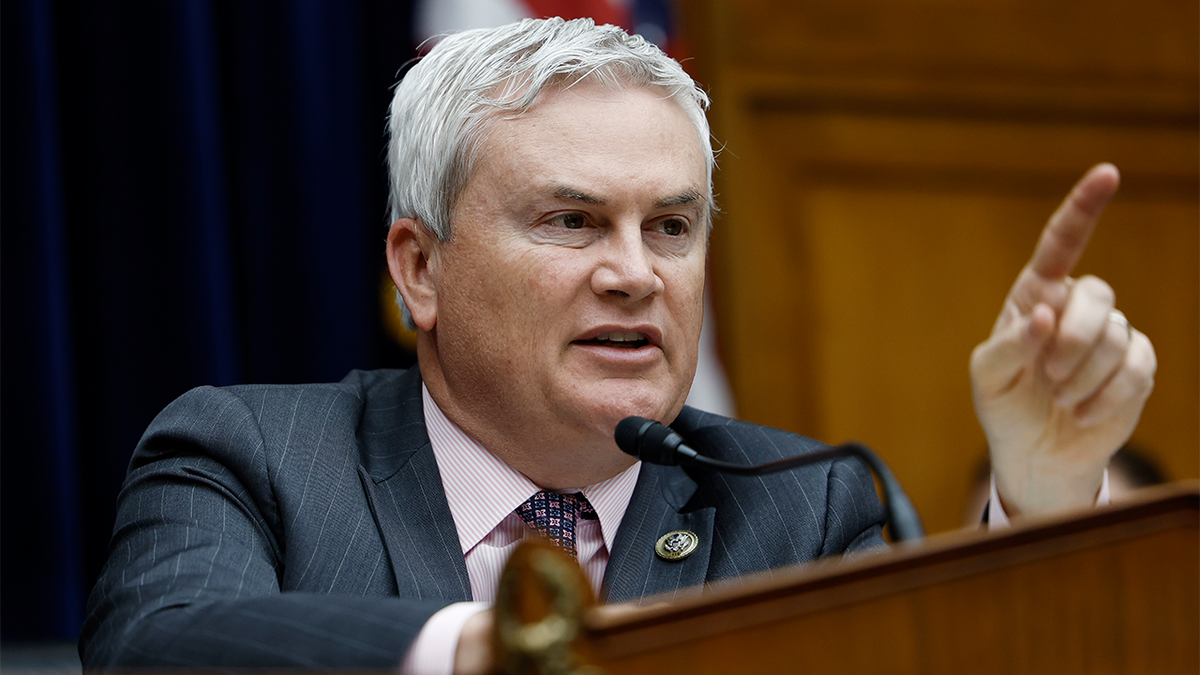
House Oversight and Accountability Committee Chairman James Comer is leading the probe into Biden. (Anna Moneymaker/Getty Images)
Jeff Zients, who served as Biden’s chief of staff for the final two years, was also asked to sit for a transcribed interview, a committee aide previously told Fox News Digital.
CLICK HERE TO GET THE FOX NEWS APP
A source familiar with the Biden team’s thinking previously called Republicans’ probe «dangerous» and «an attempt to smear and embarrass.»
«And their hope is for just one tiny inconsistency between witnesses to appear so that Trump’s DOJ prosecute his political opponents and continue his campaign of revenge,» that source said.
When reached for comment, Adrienne Watson, a representative for Sullivan, told Fox News Digital, «Jake did not have a conversation with Ron about Joe Biden running for president before the debate.»
Fox News Digital also reached out to Klain’s attorney as well as a contact for comment for Clinton but did not hear back by press time.

 ECONOMIA2 días ago
ECONOMIA2 días agoEl consumo en Argentina crece 4% en junio, ante menor inflación y más crédito

 POLITICA1 día ago
POLITICA1 día agoMáximo Kirchner declaró una fortuna de 8.300 millones de pesos: representa un 76% más que el año anterior

 CHIMENTOS2 días ago
CHIMENTOS2 días agoEl desgarrador testimonio del hermano de Locomotora Oliveras: “El daño es irreversible, solo puede vivir con respirador”















